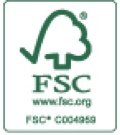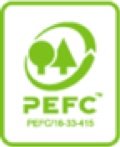PODW main newsletter October 2015 – UK Conference Highlights

The ALPSP International Conference 2015
For the second year running, the ALPSP International Conference was held at the Park Inn, Heathrow Airport. It took place on 9th – 11th September. PODW was one of the sponsors and it was a good opportunity to talk to publishers with regard to our print and journal subscription solution Journal Vault. This is an invaluable package for journal publishers wishing to manage print logistics and subscription lists from within one easy to use database.
The keynote presentations featured speakers from Google Scholar and Microsoft. Anurag Acharya, co-creator of Google Scholar, took as his topic, ‘What happens when your library is worldwide and all articles are easy to find?’ Kuansan Wang, of Microsoft, spoke on, ‘From web publishing to knowledge web publishing’.
Anurag Acharya said that in journals publishing the ‘distribution pyramid’ has flattened. Relevance ranking allows all articles to rise in frequency of use by merit alone, and full-text indexing ensures that every part of an article is accessible. There has been a tremendous growth in queries by those searching for journal articles in Google Scholar, resulting not only in many more users, but many more queries per user. Most queries are unique and many are no longer limited to the researcher’s own area of specialism. Citation patterns have also changed. Not all of the most cited articles are now from the most elite journals. Abstracts are part of the essential filtering process that users have to engage with now that so much material is available.
Kuansan Wang explained that the semantic web distinguishes between human readable and machine readable content. Humans define the standards for the data formats and models used. An explicit and precise specification of knowledge representation has to be agreed upon by everyone involved. The more recently-developed, arguably more sophisticated, ‘knowledge web’ enables machines to read human readable content. The machine learns to conflate different formats of the same thing and is able to interpret ‘latent and fuzzy’ representations of knowledge by mining big data. This has major implications for the application of search technology in the academic domain. When online research is being carried out, ways have to be found to recommend methods of completing seldom or never foreseen queries; to rank suggestions; and to avoid making suggestions that will lead to no or bad results.
A full set of presentations from the conference is available to ALPSP members and associate members on the ALPSP website.
The Booksellers Association Conference
The BA Conference 2015 took place in the Rootes Building at Warwick University. The main conference day was Monday 21st September, preceded on September 20th by the Gardner’s trade show and conference dinner. Tim Walker, current President of the BA, gave an inspired presidential address, during which he showed photographs of bookshops across the country participating in the Books Are My Bag campaign, which continues to be hugely successful. It has been one of the inspirations for Academic Book of the Future initiative (see article below).
Tim Walker said that, headed by Tim Godfray, the BA has launched a campaign to promote awareness within the EU of the dangers posed by Amazon. The EU’s competition directorate has launched an investigation into Amazon’s dealings with print books, which should probably be extended to e-books as well. The EU is taking this seriously, but will probably take a long time to make a ruling.
The National Acquisitions Group Conference
The National Acquisitions Group Conference took place in York at the beginning of September. NAG is an organisation which recruits both public and academic librarians, but recent conferences have tended to concentrate on the public library sector. This year, however, there was a welcome bias in favour of academic libraries. The following are some of the highlights from four presentations by librarians from the academic sector.
Typically, only 46% of students are happy to purchase books for their course, even if they attend a Russell Group university. When students are provided with course books in e-format free of charge (i.e., as part of their course fee or via the library) most will use them (though not necessarily more than once). 50% of students are more likely to do the reading for a seminar if they have first been provided with a ‘free’ copy of the e-book. However, only a small proportion of students use the additional functionality available with e-books, with the exception of Word Search, which is used by about two-thirds.
Employing student champions with some purchasing power who will canvass ideas for library acquisitions from their peers enables a more democratic way of selecting library resources, although there are significant problems attached to it: it is time consuming, relies on the diligence of the students concerned, and may be difficult to justify in terms of value for money. Chapters selected by librarians (as opposed to academics) and scanned under the terms of the CLA licence have increased the proportion of reading list material scanned at one university (South Bank) to 50% (when it was formerly 4%). Problems with accessing resources on mobile phones are largely caused by licence restrictions and proprietary software imposed by aggregators. Users have not experienced the same problems with materials sourced direct from publishers.
A full set of presentations from the conference is available to NAG members on the NAG website.

 Bookvault
Bookvault Photobubble
Photobubble BookWIZARD
BookWIZARD




